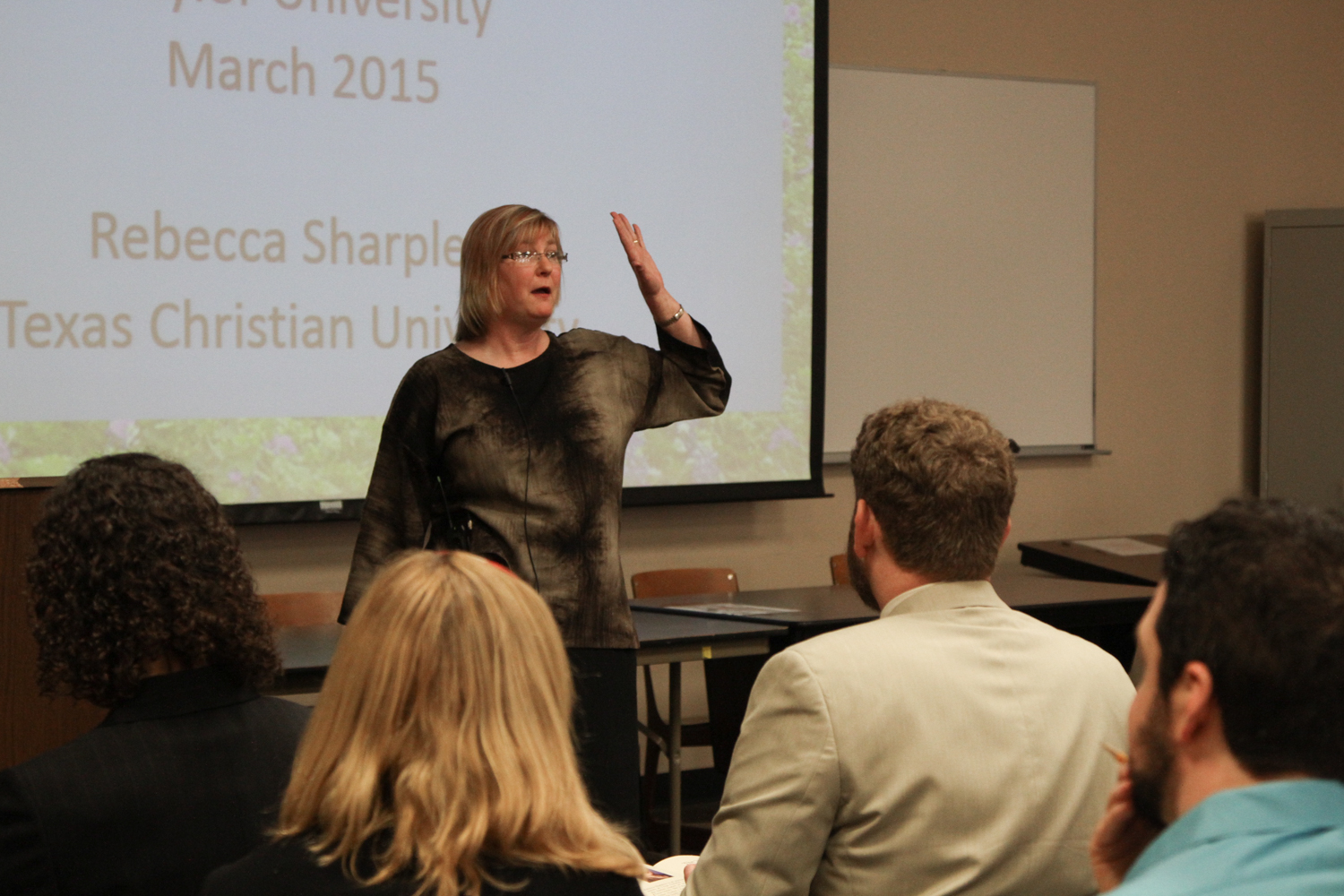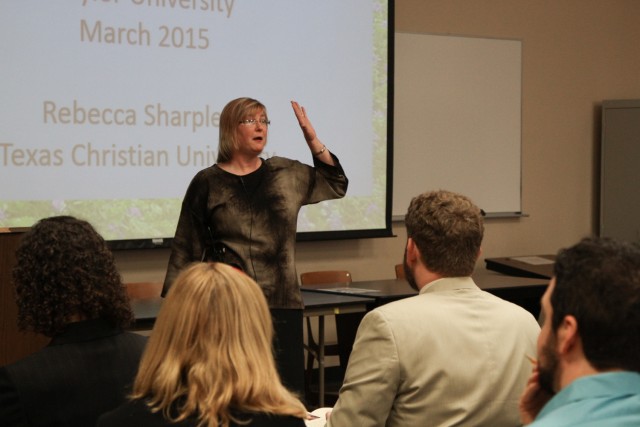
Hannah Haseloff | Lariat Photographer

Hannah Haseloff | Lariat Photographer
By Amanda Hayes
Reporter
The columns at Independence, Texas, are not only a symbol of Baylor’s history, but also hold a special meaning for women.
No males ever took classes in the original building where these columns stood, said Dr. Rebecca Sharpless, associate professor of history at Texas Christian University and Baylor graduate. Independence is the location where Baylor was chartered in 1845 by the Republic of Texas, and incoming students visit the site every summer at Line Camp.
The 21st Annual Women’s History Month Lecture, sponsored by the history department and Phi Alpha Theta, took place Monday in Morrison Hall.
Dr. Andrea Turpin, assistant professor of history, introduced Sharpless and the topic of “Baylor’s First Female Students: Sallie McNeill and Educated Texas Women.”
Turpin said this year’s speaker was chosen because Sharpless recently published a book, “Cooking in Other Women’s Kitchens: Domestic Workers in the South”, that got positive reception. Coincidentally, Turpin said, Sharpless was also studying the history of women’s education at Baylor.
Sharpless recounted details of early female students at Baylor and urged the audience to think about why women should be educated.
Before the American Revolution, Sharpless said, there was an idea that women didn’t need to be educated because they were not as smart as men. After the Revolution, however, education seemed more necessary as women needed to be good mothers to their sons, known as the “Republican Mother.”
From 1790 and forward there were education institutions for males and females, but often separate, Sharpless said.
Sharpless studied the diary of Sallie McNiel, a female Baylor student who was one of 12 women to graduate in 1858. Using the primary source of McNeil’s introspective writing, Sharpless said she was able to get a good picture of what it was like to be in the class of 1858, even without any images of the student. Sharpless described these women as girls, because McNeil was only 16 years old when she came to Baylor.
There is evidence that men and women were in the same classes until 1851, Sharpless said, when the university almost died during the Civil War. Rufus Burleson arrived that year with a list of demands, including that he wanted to split the school into male and female departments.
Horace Clark was the principal of the female department, and Burleson was both principal of the male department and over the entire university. Sharpless compared their relationship to a university with a football coach that is also the athletic director, and said that there was hatred between the two principals.
Mary Gentry Kavanaugh was the first female graduate in 1855, when females did not receive bachelor’s degrees, just certificates.
Clark said in his commencement address of 1856, “The education of woman is as much her birthright as the air she breathes, food she eats, apparel she wears.”
Sharpless said Clark believed the reason for women’s education was to fulfill their duties of daughter, wife, mother, and member of society, but not to pursue a career.
Sharpless also said the diary took a disturbing turn when it became apparent that slaves made everything possible for these women, but they were rarely recognized.
Some things do not change, however, as Sharpless said the diary showed that the early female students at Baylor cared deeply about friendships, new dresses, and who was dating who. McNeil remained connected to her classmates until her death in 1867, probably due to yellow fever.
Sharpless said these women followed a well-rounded curriculum, and many people today are surprised to learn that girls got a real education before the Civil War.
“Current female students at Baylor should know that their education is taken seriously, and has been for 170 years,” Sharpless said.





